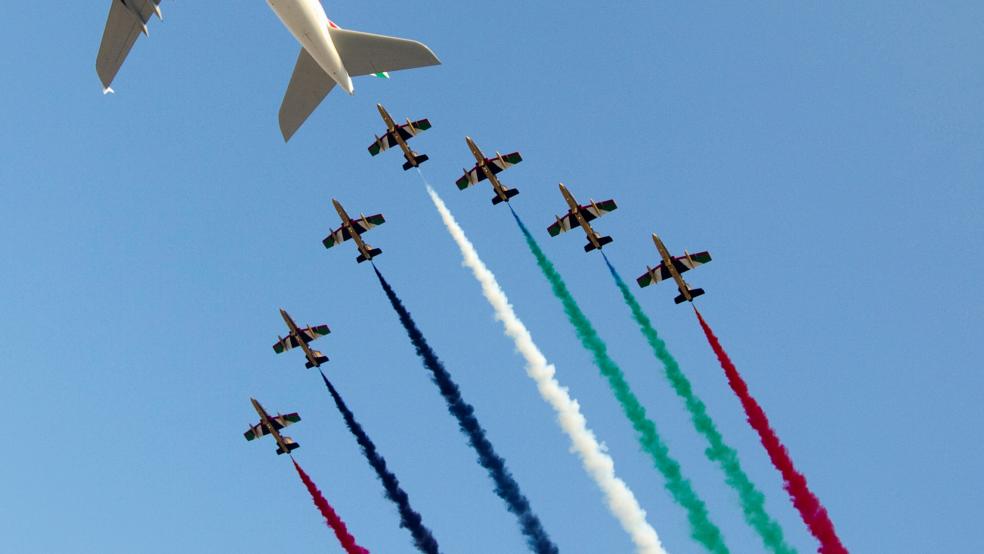NANTES, France (Reuters) - Emirates announced a deal for up to 36 Airbus A380 aircraft on Thursday worth as much as $16 billion at list prices, saving the world's biggest passenger jet from death row and securing its future for at least another decade.The European planemaker said Emirates [EMIRA.UL] had placed a provisional order for 20 of the double-decker superjumbos, with an option for 16 more. Deliveries are due to start in 2020.The agreement hands a lifeline to the slow-selling aircraft, in service for just 10 years, and rescues one of Europe's most visible industrial symbols overseas."The A380 is good to go," Emirates President Tim Clark told Reuters. Airbus shares rose more than 3 percent after the announcement to touch a record high of 92.56 euros. The deal ends months of tough-fought negotiations. Talks between Airbus and Emirates about a fresh A380 order broke down at the last minute at the Dubai Airshow in November, when the Gulf carrier placed an order for 40 smaller Boeing 787s.Earlier this week, Airbus confirmed a Reuters report that the A380's survival lay with Emirates, saying it would have "no choice" but to close production if the Emirates deal fell through despite interest in smaller orders from others.Emirates and Airbus both said the deal would bring stability to the A380 production line.The deal marks a final flourish for veteran Airbus sales chief John Leahy, one week before he retires after more than 20 years as the driving force of European aircraft exports."Emirates is committing to the program for the long term and plans to take six airplanes a year for 9-10 years," the 67-year-old New Yorker told Reuters from onboard an A380 on his way back to France from Dubai.Calling time on the A380 would not have caused major financial damage to Airbus, but would have been "emotionally expensive," a company source said.SUPERJUMBO VS TWIN-ENGINESLeahy said he was now convinced the A380 would be built well into the 2030s.Sales of the A380 have fallen short of expectation and rival Boeing says the future lies with smaller, twin-engine models like its 777 and Dreamliner that offer more flexibility and are at least as efficient. But Airbus believes its 544-seat superjumbo still has a role as air traffic rises and airports become ever more congested. The Emirates deal also means a potential revival for one of the world’s largest aircraft engines, co-produced by General Electric and Pratt & Whitney . Their Engine Alliance venture powers most Emirates A380s, but it has lost out to competitor Rolls-Royce on the latest deliveries.Emirates has, however, appeared unhappy with the performance of the Rolls-Royce Trent 900 engines. It has invited the two engine makers to compete for the new A380 order, two industry sources said.Rolls-Royce had no immediate comment. Emirates said it had yet to make a decision on engine supplier.Emirates' commitment to take six A380s a year for a decade fills a gap in planned production as Airbus touts business from other airlines. "That provides a base allowing the program to continue so that Airbus can sell two or three planes here, four there," Leahy said.Analysts say Airbus is unlikely to break even on the A380 at such production levels, but that the losses will not make a big impact on the company's accounts, which are dominated by sales of smaller jets worth tens of billions of dollars a year.Emirates is by far the largest operator of the A380 with 101 in service today and a backlog of 41 superjumbos on order before Thursday's announcement. The last order by another airline for the A380 was in 2015 when Japan's ANA booked three. (Reporting by Tim Hepher; Writing by Richard Lough; Editing by Mark Potter)

